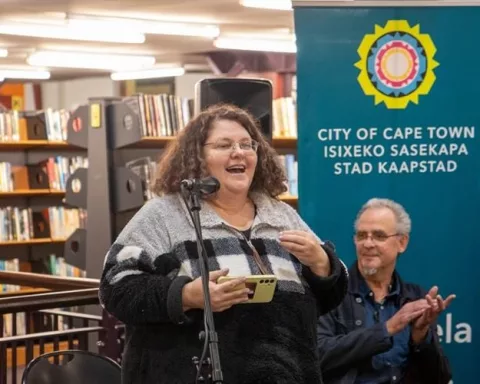South Africa is tackling youth unemployment and socio-economic challenges by empowering its youth. The government has implemented policies and initiatives to enhance youth economic participation, such as the Presidential Youth Employment Intervention (PYEI) and the National Pathway Management Network. Additionally, entrepreneurship is being emphasized, with support for small businesses and programs like the Khoebo Innovation Promotion Program. These efforts are expected to generate hundreds of thousands of jobs and foster socio-economic change in the country.
What efforts are being made to combat youth unemployment in South Africa?
The South African government has implemented policies and initiatives to enhance youth economic participation, such as the Presidential Youth Employment Intervention (PYEI). The National Pathway Management Network, led by the Department of Employment and Labour, unites over 30 partners to consolidate opportunities from across the economy. Additionally, entrepreneurship is being emphasized, with support for small businesses and programs like the Khoebo Innovation Promotion Program. The government has also initiated an investment drive expected to generate hundreds of thousands of jobs.
Tackling Youth Unemployment and Socio-Economic Challenges
South Africa, a nation in the midst of transformation, has a burgeoning population of more than 62 million people, the majority of whom are below the age of 35. As the country confronts problems such as poverty, inequality, and joblessness, concentrating on youth empowerment has become increasingly vital. In this article, we will explore the joint efforts of different stakeholders, including the government, private sector, and civil society, to combat youth unemployment and foster socio-economic change.
South African youth face numerous interconnected challenges. A staggering 8.8 million young individuals are neither employed, educated, nor undergoing training. This dilemma is worsened by increased urbanization and relocation to major cities like Gauteng and Western Cape. These provinces offer more economic prospects than peri-urban and rural regions, resulting in heightened strain on resources and service delivery.
To counteract these issues, the South African government has put in place a range of policies and initiatives geared towards enhancing youth economic participation. The Presidential Youth Employment Intervention (PYEI) is one such collaborative effort that aims to grant young people entry to the labor market through employment initiation schemes or entrepreneurial endeavors. This alliance between government officials, private sector representatives, and civil society seeks to offer lasting solutions to socio-economic problems.
Strengthening Economic Recovery and Entrepreneurship
The National Pathway Management Network is at the heart of PYEI’s success. This initiative, led by the Department of Employment and Labour, unites over 30 diverse partners to consolidate opportunities from across the economy. As a result, young people can identify earning and learning possibilities, enter the labor market, and receive the support required to establish their own businesses at no cost.
A notable accomplishment of this network is the SA Youth platform launched by Harambee. With more than 4.1 million young people enrolled, this inclusive platform employs advanced technology, such as geo-mapping, to connect youth with opportunities close to their homes. This innovation is particularly advantageous for those living farther from economic centers, allowing them to access opportunities and jump-start their entrance into the labor market.
To further stimulate private sector investment and job creation, the government has initiated an investment drive with an initial goal of R1.2 trillion over five years. This effort has already secured nearly R1.5 trillion in investment pledges, many of which are anticipated to convert into actual employment. These new collaborations are expected to bolster economic recovery and generate hundreds of thousands of jobs in the energy, transport, and logistics sectors.
Fostering Youth Empowerment Through Skill Development
Entrepreneurship is a critical component of empowering South Africa’s youth. Over the past decade, the Gauteng Provincial Government has emphasized reinvigorating the township economy, leading to the expansion of small businesses, particularly those operated by women and youth. The government’s support extends to innovative enterprises that utilize technology to generate profits while serving communities.
The Department of Trade Industry and Competition’s Special Economic Zones (SEZs) and Industrial Park Programmes have also played a significant role in integrating youth into the economy. For example, the Khoebo Innovation Promotion Program (KIPP) has provided over R41 million to commercialize newly developed technological or innovative products. Half of this investment has been allocated to youth-owned companies.
To make a meaningful impact on youth unemployment, South Africa must adopt a multi-faceted approach centered on entrepreneurship and inclusive hiring. This involves being strategic in ensuring young people learn new skills responsive to the demands of the economy while being prepared to work when opportunities arise.
South Africa’s youth have the potential to transform society, making them effective change agents for communities. As the nation advances, it is crucial for all stakeholders to collaborate in creating opportunities for young people to flourish and partake in the rewards of their country’s progress.
In conclusion, the combined efforts of the public and private sectors, as well as civil society organizations, are laudable in addressing the difficulties faced by South African youth. By working together, these stakeholders can empower young individuals to carve out a brighter future for both themselves and the nation.
1. What is the youth unemployment situation in South Africa?
South Africa has a staggering 8.8 million young individuals who are neither employed, educated, nor undergoing training, and increased urbanization and relocation to major cities have further worsened the situation.
2. What policies and initiatives has the South African government implemented to enhance youth economic participation?
The South African government has implemented policies and initiatives such as the Presidential Youth Employment Intervention (PYEI), the National Pathway Management Network, and the Khoebo Innovation Promotion Program to enhance youth economic participation.
3. What is the National Pathway Management Network?
The National Pathway Management Network is an initiative led by the Department of Employment and Labour that unites over 30 diverse partners to consolidate opportunities from across the economy, aimed at enhancing youth economic participation.
4. What is the SA Youth platform launched by Harambee?
The SA Youth platform launched by Harambee is an inclusive platform that employs advanced technology such as geo-mapping to connect youth with opportunities close to their homes.
5. What is the investment drive initiated by the South African government?
The investment drive initiated by the South African government is aimed at stimulating private sector investment and job creation with an initial goal of R1.2 trillion over five years, and it has already secured nearly R1.5 trillion in investment pledges.
6. How has entrepreneurship been emphasized in South Africa?
Entrepreneurship has been emphasized in South Africa by the Gauteng Provincial Government’s reinvigoration of the township economy and the Department of Trade Industry and Competition’s Special Economic Zones and Industrial Park Programmes, including the Khoebo Innovation Promotion Program.
7. How can South Africa make a meaningful impact on youth unemployment?
South Africa can make a meaningful impact on youth unemployment by adopting a multi-faceted approach centered on entrepreneurship and inclusive hiring, being strategic in ensuring young people learn new skills responsive to the demands of the economy, and being prepared to work when opportunities arise.
8. What is the potential of South Africa’s youth?
South Africa’s youth have the potential to transform society, making them effective change agents for communities, and it is crucial for all stakeholders to collaborate in creating opportunities for young people to flourish and partake in the rewards of their country’s progress.








